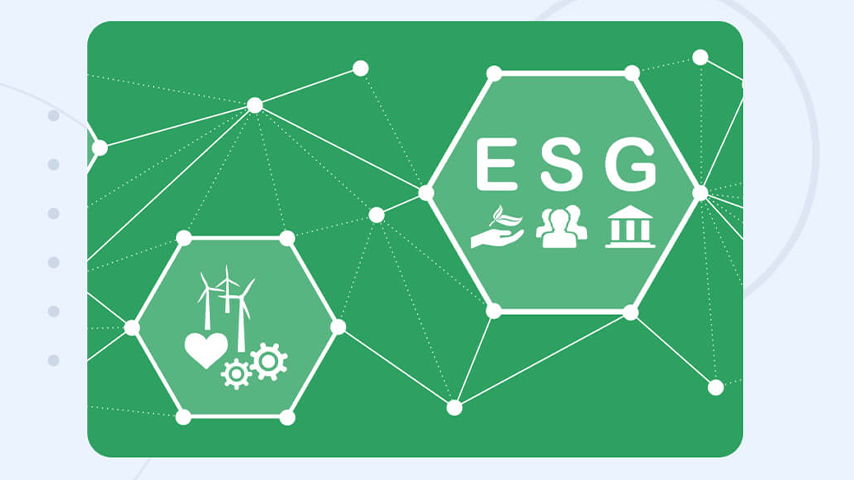As Environmental, Social, and Governance (ESG) factors increasingly influence corporate strategy and investor decisions, businesses are prioritizing accurate and transparent ESG tracking. Managing ESG data effectively requires robust data solutions for ESG tracking that can aggregate, analyze, and report data from a variety of sources. The right tools not only simplify the data management process but also support organizations in meeting regulatory requirements, setting sustainability goals, and communicating their progress to stakeholders.
In this blog, we’ll cover the top data management tools for accurate ESG tracking, highlighting how these solutions streamline sustainability data integration and provide actionable insights.
Why ESG Tracking Tools Are Essential
Accurate ESG tracking goes beyond simple data collection—it involves integrating diverse data points across environmental impact, social responsibility, and governance practices. Organizations are challenged to compile this data from multiple sources such as emissions monitoring systems, supply chain data, employee surveys, and financial systems. Data management tools help streamline this process by integrating, organizing, and analyzing data in a unified platform, enabling organizations to track performance, identify risks, and make informed decisions.
With evolving regulations and growing demand for transparency, ESG tracking tools are essential for:
1. Efficient data collection and integration
2. Accurate, realtime reporting
3. Regulatory compliance
4. Enhanced decision making
Let’s look at some of the best data solutions for ESG tracking available today.
1. SASB Navigator
SASB (Sustainability Accounting Standards Board) Navigator is a wellregarded tool designed for aligning corporate sustainability metrics with industry standards. The platform offers a datadriven approach to assessing material ESG factors, helping organizations focus on metrics that have a significant impact on their sector. SASB Navigator uses an extensive set of standards developed specifically to guide ESG disclosure, making it easier to track and report on ESG metrics in a way that aligns with industry norms.
Key Features:
Industryspecific ESG standards
Customizable reporting templates
Benchmarking capabilities to compare with peers
SASB Navigator is ideal for organizations looking to improve the relevance and comparability of their ESG data, providing a strong foundation for accurate reporting and benchmarking.
2. MSCI ESG Manager
MSCI ESG Manager is a powerful platform known for its ability to provide comprehensive ESG analytics. Used widely by investors and corporations alike, MSCI ESG Manager offers data on over 7,000 companies globally, helping businesses evaluate their ESG performance and assess industry benchmarks. The platform allows organizations to track key performance indicators (KPIs) across various ESG categories, offering insights that help businesses make improvements where they are most needed.
Key Features:
Access to extensive ESG datasets
Detailed reports and analytics
Realtime ESG risk assessment
MSCI ESG Manager helps companies to gain a complete view of their ESG standing and analyze their performance against peers, making it an essential tool for organizations focused on sustainable investing.
3. Enablon ESG Reporting
Enablon ESG Reporting is an allinone solution that integrates environmental, health, safety, and sustainability data. The platform is ideal for organizations that need to capture detailed environmental and social data from multiple sources and ensure compliance with regulatory frameworks. Enablon provides customizable dashboards and reporting capabilities, allowing companies to tailor ESG reports to meet both internal and external needs.
Key Features:
Data collection from diverse sources
Compliance with global sustainability standards
Intuitive dashboards for realtime data visualization
With Enablon, companies can not only track but also actively manage their ESG goals, making it one of the most flexible sustainability data integration tools on the market.
4. EcoVadis
EcoVadis is widely known for its comprehensive approach to sustainability data integration and supplier risk management. The platform focuses on evaluating the sustainability performance of suppliers, offering data on environmental, social, and ethical performance. Companies use EcoVadis to monitor supply chain risks, ensuring that suppliers align with ESG goals, which is critical in industries where supply chain practices play a significant role in sustainability.
Key Features:
Supplier assessment and risk management
Customizable scorecards and benchmarks
Tools for continuous monitoring and improvement
EcoVadis is an essential tool for companies with complex supply chains, helping them ensure that their partners uphold ESG principles and reduce risks associated with sustainability issues.
5. SpheraCloud ESG Reporting
SpheraCloud ESG Reporting offers an integrated platform that combines environmental, social, and governance data management with advanced analytics. SpheraCloud is particularly useful for organizations looking to capture data on environmental impacts like emissions, energy consumption, and waste. Its reporting capabilities are robust, making it suitable for both compliance and voluntary sustainability reporting.
Key Features:
Comprehensive data management for environmental metrics
Advanced analytics and KPI tracking
Customizable dashboards for streamlined reporting
SpheraCloud is a versatile tool for companies aiming to track their environmental footprint with precision and transparency, enhancing the depth of their sustainability reporting.
6. Datamaran
Datamaran stands out as a unique ESG platform that leverages AI to scan and analyze corporate disclosures, regulations, and news for realtime risk identification. This tool is wellsuited for companies in highly regulated industries or those facing frequent changes in compliance standards. With AIdriven insights, Datamaran allows companies to stay proactive and adapt to evolving ESG requirements efficiently.
Key Features:
AIpowered risk assessment and monitoring
Realtime analysis of regulatory changes
Customizable reporting aligned with global standards
Datamaran is an innovative solution for organizations that prioritize staying ahead of regulatory trends and managing ESG risks proactively.
7. Workiva ESG
Workiva is an integrated data management and reporting platform that simplifies ESG tracking for companies of all sizes. Known for its transparency and ease of use, Workiva supports data integration, collaboration, and reporting on a single platform. It also allows companies to map their data to various frameworks, making it easier to align reports with standards such as GRI, SASB, and TCFD.
Key Features:
Seamless data integration and management
Flexible reporting framework compatibility
Collaboration tools for crossdepartmental coordination
Workiva’s userfriendly interface and adaptability make it a great option for companies looking to streamline their ESG tracking efforts across departments and standardize their sustainability reporting.
Choosing the Right Tool for Your Organization
Selecting the right ESG tracking tool depends on various factors, such as the size of your organization, industry requirements, and specific sustainability goals. Some companies may prioritize a tool with robust environmental data tracking capabilities, while others might focus on supplier assessments or AIpowered risk monitoring.
Consider the following when choosing an ESG data solution:
Compatibility with reporting standards: Does it support frameworks like GRI, SASB, and TCFD?
Customization and scalability: Can the tool grow with your organization’s needs?
Data integration capabilities: How easily can it integrate data from diverse sources?
Conclusion
As ESG continues to shape business practices and investor expectations, having a reliable data management tool is essential for accurate ESG tracking. Tools like SASB Navigator, MSCI ESG Manager, and Workiva help businesses streamline data integration, track KPIs, and enhance transparency. By investing in effective data solutions for ESG tracking, companies can better manage risks, meet regulatory standards, and communicate their sustainability commitments with confidence.





